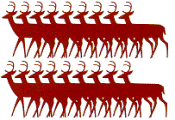United States Department of Agriculture, National Wildlife Research Center: Symposia

Contraception in Wildlife Management
Date of this Version
October 1993
Abstract
Common brushtail possums are serious pests in New Zealand, where they threaten the survival of native plants and animals and spread bovine tuberculosis. A National Science Strategy Committee established in 1991 to coordinate possum research gave high priority to research aimed at biological control of possums, particularly contraceptive control. Surveys are identifying pathogens and potential vectors, and research has begun on immunology, gene transcription, potential contraceptive targets, and sociobiology. As there are more than 60 million possums in New Zealand, contraceptive vaccine delivery systems need to be cost effective, and they must be publicly acceptable. A vaccine could be included in a bait, but long-term cost-effective control will probably require a biological vector. Eventually the best control strategy will probably combine traditional control and immunocontraception.


Comments
Contraception in wildlife management. APHIS Technical Bulletin No. 1853. USDA, Animal and Plant Health Inspection Service, Washington, D.C., USA.